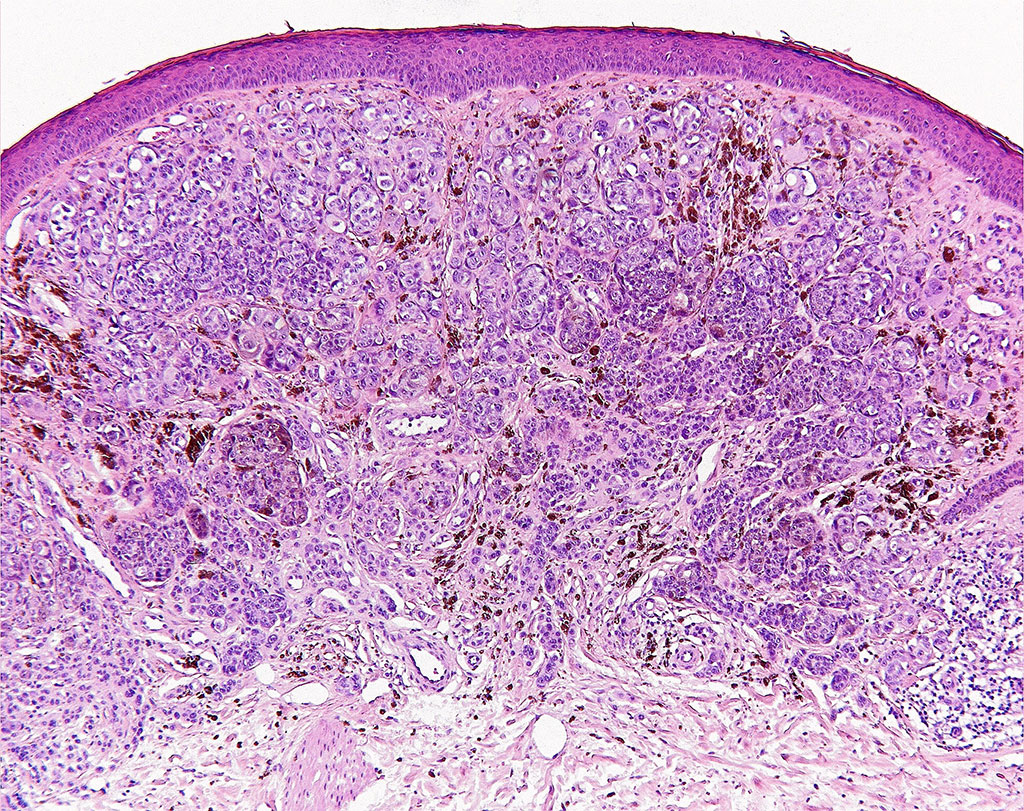DNA Copy Number Alterations Impact Melanoma Metastasis
Posted on 19 Jul 2022
Changes in DNA can lead to the development and progression of cancer. DNA serves as a template for an intermediary molecule called RNA that, in turn, codes for proteins that control all cellular processes.
MicroRNA (miRNA) molecules are small segments of nonprotein coding RNA that can silence other protein-coding RNA molecules and regulate the production of proteins. When the activity of miRNA molecules is perturbed, diseases such as cancer can develop.

Molecular Oncologists at the H. Lee Moffitt Cancer Center (Tampa, FL, USA) investigated the contribution of competitive endogenous RNAs to the oncogenic effects of somatic copy number alterations (CNAs). RNAs affecting the function of miRNAs are called competitive endogenous RNA (ceRNA) and are thought to play an important role in cancer development independent of their protein-coding activity.
The team analyzed chromosome alterations and discovered that gains in chromosome segment 1q were very common among a panel of metastatic melanoma cases. A more in-depth analysis revealed that three key genes called CEP170, NUCKS1 and ZC3H11A present on chromosome 1q are amplified in metastatic melanoma cases and associated with disease progression. Mechanistically, they discovered that the RNA sequences of the three genes act as ceRNAs that sponge miRNA molecules that function to inhibit tumor growth and development. Therefore, by "soaking up" the miRNA molecules and their blocking antitumor activity, the ceRNA molecules drive tumor growth and metastasis. Importantly, they discovered that copy number alterations of CEP170, NUCKS1 and ZC3H11A were present in other tumor types, including breast, colon, liver and lung cancer, suggesting that these alterations may be important for other cancer types as well.
These ceRNAs enhanced melanoma metastasis by sequestering tumor suppressor miRNAs. Orthogonal genetic assays with miRNA inhibitors and target site blockers, along with rescue studies, demonstrated that miRNA sequestration is critical for the oncogenic effects of CEP170, NUCKS1, and ZC3H11A mRNAs. Furthermore, chromosome 1q ceRNA-mediated miRNA sequestration alleviated the repression of several pro-metastatic target genes.
Florian A. Karreth, PhD, a molecular oncologist and senior author of the study, said, “Our study challenges the notion that somatic copy number alterations promote cancer predominantly through their encoded proteins and establishes ceRNAs as potent drivers underlying the oncogenicity of somatic copy number alterations.”
The authors concluded that this regulatory RNA network was evident in other cancer types, suggesting chromosome 1q ceRNA deregulation as a common driver of cancer progression. Taken together, this work demonstrates that ceRNAs mediate the oncogenicity of somatic CNAs. The study was published on July 14, 2022 in the journal Cancer Research.
Related Links:
H. Lee Moffitt Cancer Center













